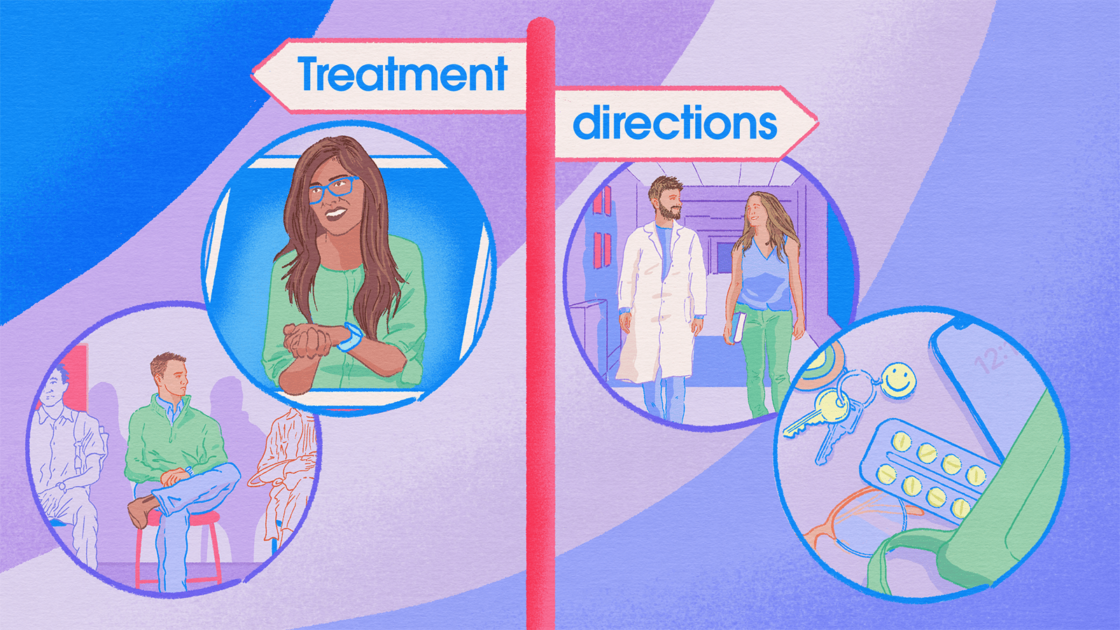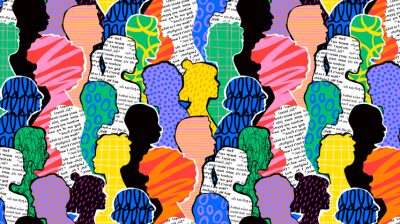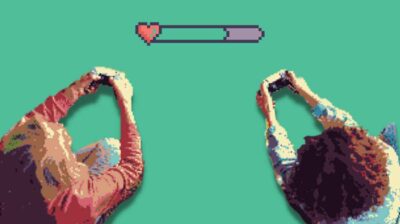How to get mental health treatment in Ireland
There are many routes through the healthcare system, it’s not one size fits all.

Everyone can experience challenges to their mental health at different points in their life. Living with mental or emotional distress is something you should never have to carry alone. Sometimes, mental health issues can be eased by getting support from the people in your life or making changes in your life to support your wellbeing. Other times, mental health issues can become more complex, long-lasting, and difficult to deal with. When this is the case, getting support from someone who is trained in delivering evidence-based mental health treatments can support you in your recovery journey.
If you’re having mental health issues, the thought of getting professional support can be scary, so taking the first step takes courage. There is a wide range of mental health supports available in Ireland, but it can be difficult to know how to access them and which type of support is best suited to your needs. Everyone is unique, so people will have different routes through the healthcare system as not one size fits all. However, learning about what treatments work best for different issues will help you navigate your own mental health treatment journey.
How to get a referral for mental health support
There are different types of mental health support available to people in Ireland. These supports are divided into different levels depending on what level of mental health difficulty they are suitable for. Support services categorise mental health difficulties into mild, moderate and severe. Using these categories helps ensure that people get the right kind of mental health treatment that meets their needs. However, even if your mental health difficulty is categorised as ‘mild’, that doesn’t mean it isn’t serious or important. Any type of suffering with your mental health can still be distressing and have a significant impact on your life.
Usually, the first step to accessing mental health treatment is to speak with a referral partner.
Your referral partner will talk to you to get a picture of the mental health issues you’re facing and will use that information to decide which support service you should be referred to. They will take a number of factors into account to identify the right service for you, including your age, the type of symptoms you’re experiencing, the severity of your symptoms and your level of risk.
Who can give me a referral for mental health support?
There are a number of healthcare professionals who can provide referrals for mental health support. The main referral partner in Ireland is your GP, so they are usually the first person to approach if you are worried about your mental health. Depending on what you’re experiencing, your GP can give you direct support or put you in touch with a suitable support service. If you talk to your GP about your mental health concerns, and you feel like they didn’t share your concerns or offer the advice or referral you wanted, you are entitled to go to another doctor for a second opinion.
Read our article on speaking to your GP about your mental health to learn more. A Jigsaw clinician can also provide referrals to mental health services for young people aged 12-25. Like your GP, Jigsaw can give you direct support or put you in touch with a support service that best meets your needs.
Can I access mental health support without a referral?
Yes. If you are seeking mental health treatment, talking to a referral partner like your GP can be helpful because they can connect you with a range of support providers, and advise you on what treatment options might best meet your needs. There are also some mental health services, like Child and Adolescent Mental Health Services (CAMHS) and Adult Mental Health Services, that can only be accessed through a referral from someone like your GP. However, there are several mental health support services that you can access without a referral, including services like the National Counselling Service, Jigsaw, your school or college counselling service, and MyMind. You can read more about these services below.
You can also access private counselling and psychotherapy without a referral. However, there are usually costs associated with this if you don’t have private health insurance, so this isn’t an option for everyone. Read our article on accessing private counselling and psychotherapy to learn more.
Can I access mental treatment on my own if I’m under 18?
You need to be 18 to consent to mental health treatment in Ireland. If you are 16 or older, you can see your doctor on your own, but they can’t promise that they won’t tell your parents or guardian about your treatment. Your parents or guardian need to give consent on your behalf. You also need consent from a parent or guardian to attend services like Jigsaw.
Types of mental health services in Ireland
Mental health supports and services in Ireland are divided into 4 levels. Each level contains services that deal with different levels of issue severity. There are services which work with people under 18 and over 18 at each level. Understanding how mental health services are structured makes the process of finding the right support for you easier to navigate.
Level 1 supports and services
Level 1 supports include resources that are freely available to all of the population. Supports at this level are best suited to helping manage ‘mild’ mental health challenges. A lot of the supports at this level contain mental health information and mental health promotion materials that help people protect their mental health and wellbeing. This includes websites like spunout.ie and yourmentalhealth.ie.
Level 1 supports also include helplines and advocacy services funded and supported by the HSE. For example, TextAboutIt, Childline, and Samaritans.
Level 2 supports and services
Level 2 supports and services are used by some of the population. These supports and services are designed for people who need more information, advice or support than what is available in level 1. The supports and services contained in this level are sometimes described as primary care services, and are designed for people who are going through ‘mild to moderate’ mental health difficulties. The types of support offered at this level tend to be brief and last for a specified time period. Often, there will only be one healthcare professional involved in providing support to the person. Level 2 supports and services include:
- HSE Primary Care Psychology: Primary Care Psychology is a collection of community-based services that provide a broad range of services to young people under and over the age of 18. They offer services like individual therapy, group therapy and different mental health assessments. Primary care psychology is based in primary care centres across the country. Each primary care centre usually has a team of occupational therapists, psychologists, nurses and social workers working there. Your GP or any other health professional can give you a referral to Primary care.
- School/College counselling: If you’re a third-level student, there will probably be free counselling services available at your college. If you’re in secondary school, your school guidance counsellor may also offer counselling support for student’s mental health. These services are almost always free to access and don’t require a referral.
- MyMind: MyMind provides online and in-person counselling services, including options for free appointments and sessions. You do not need a referral from a GP to access MyMind’s services. They provide counselling for young people under 18 and over 18.
- Silvercloud: Silvercloud health provides internet-based CBT for people over the age of 18 in programmes that run for up to 8 weeks. You cannot refer yourself to Silvercloud, you will need a referral from your GP, Primary Care Psychology, the National Counselling Service, or Jigsaw.
- Jigsaw: Jigsaw provides online and in-person mental health advice and support for young people aged 12 to 25 years old. You do not need a referral from your GP to access Jigsaw’s services.
- Turn2me: Turn2me offers online support groups and online therapy with trained professionals through video or instant message. The service is free to Irish residents over 18 and you don’t need a referral from your GP.
- Counselling in Primary Care (CIPC): CIPC is a short-term counselling service for people with mild to moderate mental health difficulties. You can get up to eight counselling sessions with a qualified counsellor or therapist. This free service is available to adults over 18 years who are medical card holders. You will need a referral from your GP, Primary Care Psychology, or Jigsaw to access this service.
- National Counselling Service: The National Counselling Service provides free counselling and psychotherapy for adults who experienced sexual abuse when they were a child. You don’t need a referral from your GP to access their services. You can contact your local National Counselling Service directly.
- Pieta house: Pieta house provide a professional one-to-one therapeutic service to people who are in suicidal distress, people who engage in self-harm, and those bereaved by suicide. All of their services are provided free of charge and you don’t need a referral to access them. Pieta house work with young people under and over the age of 18.
Level 3 supports and services
Level 3 supports and services are designed for a small proportion of the population who are experiencing moderate to severe mental health issues. The services at this level are sometimes described as specialist services. They are usually led by psychiatrists, and most of the people who are accessing supports at this level will have a clinical mental health diagnosis. To access these supports and services you need a referral from your GP or healthcare professional.
The main level 3 specialist mental health support for young people under the age of 18 is child and adolescent mental health services (CAMHS). CAMHS is designed for young people with moderate to severe mental health difficulties. Most young people who need mental health treatment in Ireland won’t attend CAMHS. Around 2% of the population will access this service. CAMHS prioritises referrals on the basis of risk instead of who was referred first, which means that people who are at considered at highest risk will be seen sooner, while those categorised as lower risk will have to wait longer to be seen. CAMHS assesses and treats conditions like attention deficit hyperactivity disorder and moderate to severe depression, anxiety, eating disorders, and self-harm.
The main level 3 specialist mental health support for young people over the age of 18 is adult mental health services (AMHS). Similar to CAMHS, AMHS is designed to support people with moderate to severe mental health difficulties. Due to the level of mental health issues they deal with, only a small percentage of people who need mental health support will access AMHS. AMHS also prioritises referrals on the basis of risk, which means that people who are at highest risk will be seen sooner while those with lower risk will have to wait longer to be seen. AMHS assesses and treats conditions, including moderate to severe depression, anxiety, eating disorders, psychosis, personality disorders, and self-harm.
Level 4 supports and services
Level 4 supports and services are designed for people who are experiencing severe and complex mental health issues that need intensive support. Engaging in level 4 supports usually involves a stay in a hospital or a similar supported living setting where a team of mental health professionals can monitor your symptoms and give you specialist support and treatments. To access these supports and services you need a referral from your GP or healthcare professional.
The main level 4 support is inpatient mental health services. Engaging in inpatient mental health services involves a residential stay in hospital where you can receive in-depth support for your mental health issues. Inpatient treatment can be really helpful if your symptoms are so severe that they are making it difficult to function, if your safety is at risk, or if you also need some physical health treatment because of your mental health issues. Most in-patient facilities are based within general hospitals. Usually, people only receive this form of treatment for a short time until their symptoms have eased enough to be able to engage in lower-level mental health services.
No matter which, if any, of these treatment options you explore over the course of your life, your treatment journey is unique to you, and your mental health concerns are important and worthy of support and treatment. There are many routes to recovery outside of these 4 levels of treatment outlined above like art and creative therapies and psychoeducation.
If you would like to learn more about mental health treatments, the following articles provide more information and guidance:
- How to access private counselling or psychotherapy
- What are mental health medications
- What is inpatient mental health treatment?
- What to do if you tried therapy for your mental health and it wasn’t helpful
Feeling overwhelmed and want to talk to someone?
- Get anonymous support 24/7 with our text message support service
- Connect with a trained volunteer who will listen to you, and help you to move forward feeling better
- Whatsapp us now or free-text SPUNOUT to 50808 to begin.
- Find out more about our text message support service
If you are a customer of the 48 or An Post network or cannot get through using the ‘50808’ short code please text HELLO to 086 1800 280 (standard message rates may apply). Some smaller networks do not support short codes like ‘50808’.






